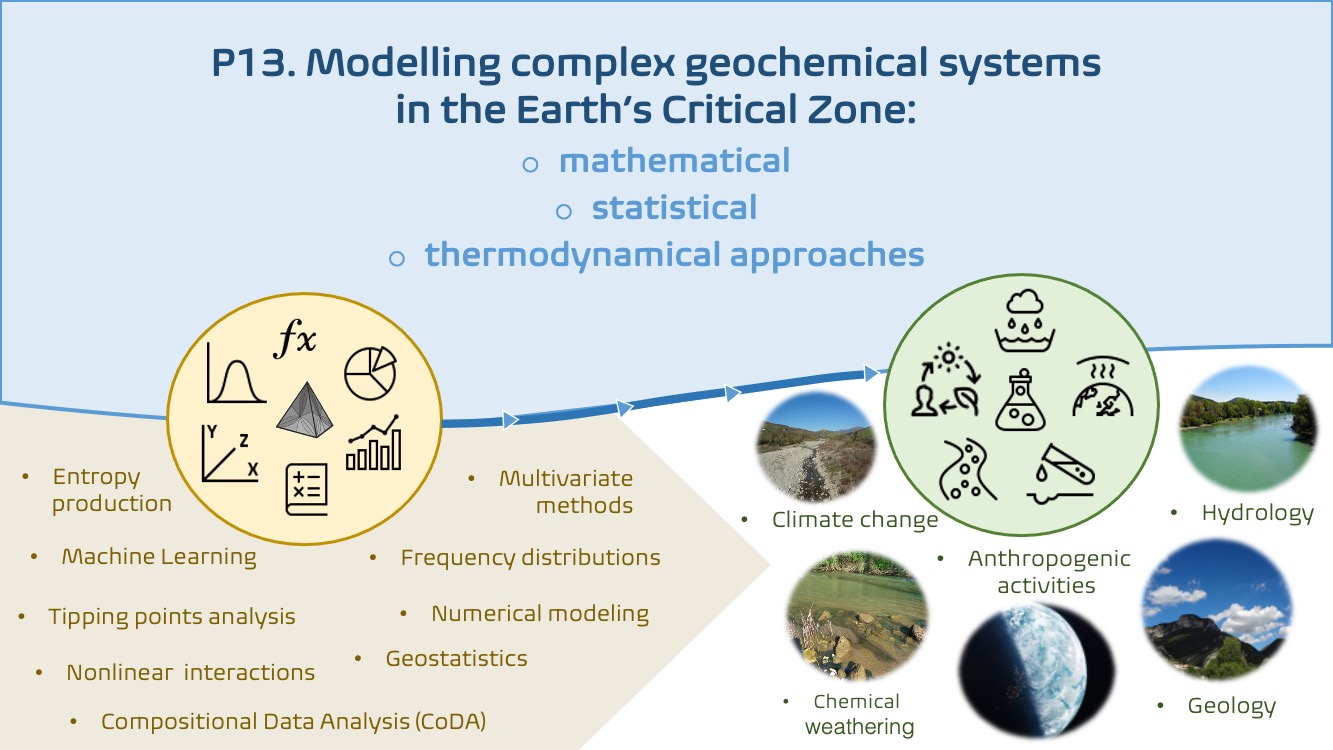- Caterina Gozzi - University of Florence
- Antonella Buccianti - University of Florence
- Brunella Raco – Institute of Geosciences and Earth Resources (IGG – CNR)
- Axel Kleidon - Max Planck Institute for Biogeochemistry, Jena (Germany)
Modelling complex geochemical systems on different space and time scales in the Earth's Critical Zone (ECZ) is a difficult task since they are often far from thermodynamic equilibrium and continuously exchange matter and energy. Long- and short-term cycles of elements are greatly influenced by chemical weathering. This last is a complex function of many environmental drivers including geology, hydrology, entropy production, dissipation, climate, drainage basin geometry, erosion and anthropogenic activities.
This session aims to explore the challenges and potentialities of quantitative data analysis and modelling in the context of ECZ geochemistry but not exclusively. Multidisciplinary studies that implement innovative numerical, statistical, and thermodynamical approaches across different space-time scales and environmental spheres are particularly welcome. In this framework, proposals for methods to identify multiple tipping points and resilience states will also be considered.
As compositional data, geochemical data have peculiar properties that depend on the integrity of the whole (i.e., the joint quantitative contribution of all the chemical constituents) and are governed by nonlinear interactions among the chemical components. Data elaboration techniques that consider the compositional nature of geochemical data, multivariate methods, space-time geochemical modelling, machine learning, as well as the analysis of complex systems responses to varying climatic and anthropogenic inputs are particularly encouraged.
This session aims to explore the challenges and potentialities of quantitative data analysis and modelling in the context of ECZ geochemistry but not exclusively. Multidisciplinary studies that implement innovative numerical, statistical, and thermodynamical approaches across different space-time scales and environmental spheres are particularly welcome. In this framework, proposals for methods to identify multiple tipping points and resilience states will also be considered.
As compositional data, geochemical data have peculiar properties that depend on the integrity of the whole (i.e., the joint quantitative contribution of all the chemical constituents) and are governed by nonlinear interactions among the chemical components. Data elaboration techniques that consider the compositional nature of geochemical data, multivariate methods, space-time geochemical modelling, machine learning, as well as the analysis of complex systems responses to varying climatic and anthropogenic inputs are particularly encouraged.
Complex geochemical systems, Earth's Critical Zone, geochemical modelling, thermodynamics, Compositional Data Analysis

